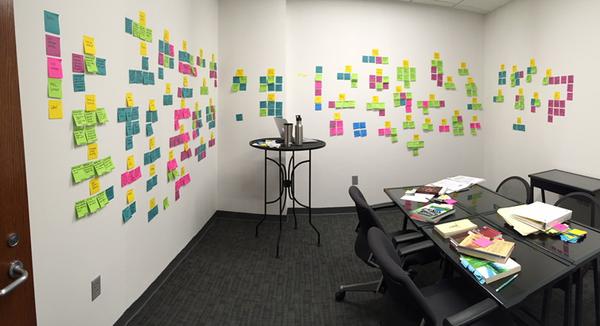
Have you ever tried to explain information architecture, interaction design, or user research to someone who doesn’t work in the UX field? If you have, you know that defining the things we do is a huge challenge.
Defining what we do isn’t just a challenge when talking to folks outside of the UX field. Experienced UX designers often struggle to define UX terms. How do we explain information architecture, interaction design, or content strategy in a way that’s concise but comprehensive? Where does one discipline end and another begin? How do we explain each unique discipline to someone who is learning UX design?
While developing coursework for User Research Practices, a course that introduces usability testing, user interviews, surveys, and field observations, I worked on Center Centre’s definition of user research.
This definition had to be clear, concise, and easy for anyone to understand. The more I tried to arrive at a definition, the more I felt stuck. So I asked our co-founder, Jared Spool, for help. I shared my working definition of user research with him:
User research reveals the needs and behaviors of our users. Understanding these needs and behaviors allows us to make informed design decisions that serve both our users and our business goals.
Jared built upon my definition and responded with this definition:
User Research is a set of tools and practices to help design teams understand who their users are, what they need, the contexts the team’s designs will live in, and unrealized opportunities for the organization.
At Center Centre, this is our definition of user research.
When students attend Center Centre, they’ll have a shared vocabulary for each UX topic they learn. When we work on projects and participate in classroom activities with a shared understanding, everyone—students, faculty members, industry experts, and partner company mentors—will be able to communicate effectively and efficiently. When a student or faculty member uses a term like “information architecture,” “interaction design,” or “user research,” everyone in the room will know what that term means.
Would you like to become a Center Centre student? Apply to Center Centre today. Do you know someone who would make a great student? Please tell them about us. We look forward to hearing from them.

